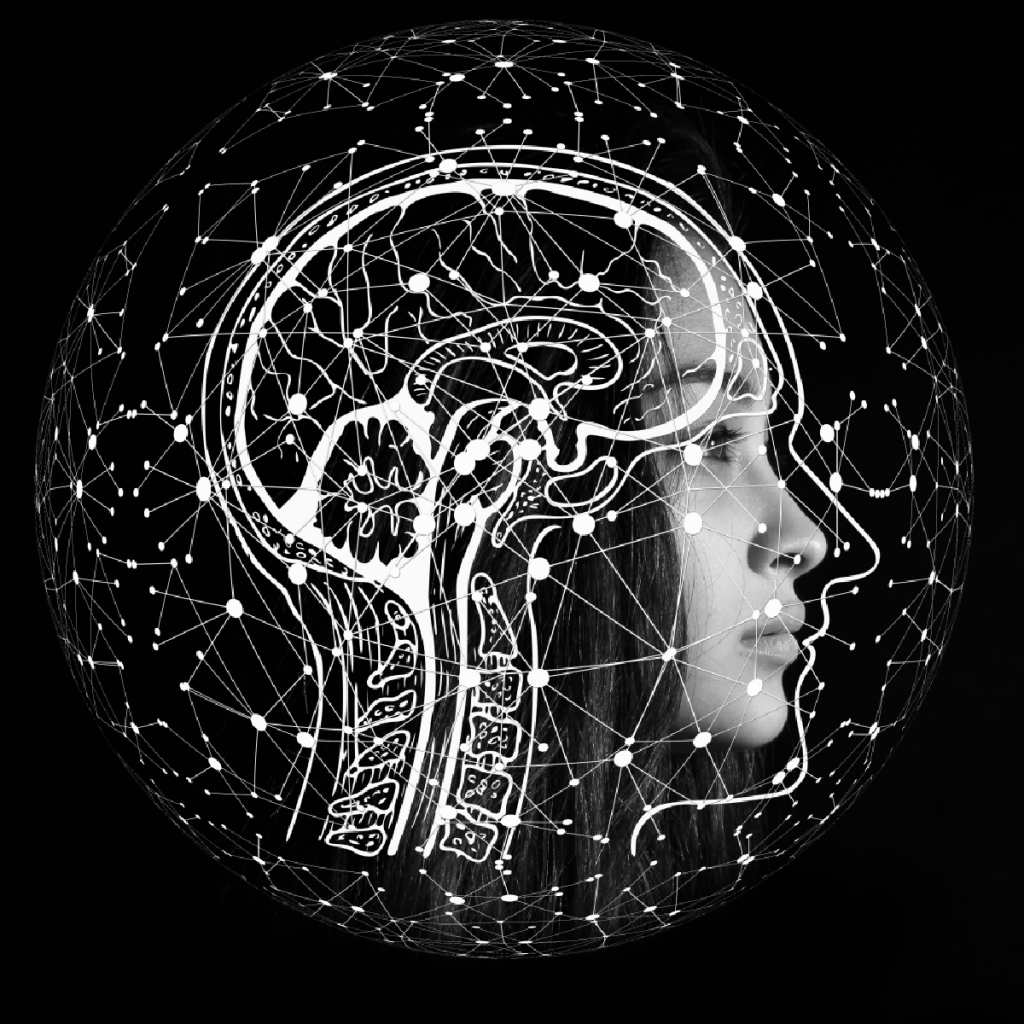Can Nootropics Enhance Creativity? An Exploration of the Benefits
08/08/2023

Nootropics, also known as smart drugs or cognitive enhancers, have gained significant attention in recent years for their potential to enhance various aspects of cognitive function. One area of particular interest is their ability to enhance creativity. In this article, we will explore the benefits of nootropics and their connection to creativity.

Understanding Nootropics: A Brief Overview
Before delving into the specific benefits of nootropics, let's first gain a basic understanding of what they are. Nootropics are substances that can improve cognitive function, including memory, focus, and creativity. They can be natural compounds or synthetic substances, and they work by modulating neurotransmitter levels or promoting neurogenesis.
Nootropics have gained significant attention in recent years for their potential to enhance brain health and cognitive performance. Researchers and individuals alike are exploring the fascinating world of these substances, hoping to unlock their full potential.
What are Nootropics?
Nootropics are a class of substances that can enhance cognitive performance and promote brain health. They can be natural compounds, such as herbs and botanicals, or synthetic substances like pharmaceutical drugs. Nootropics work by increasing blood flow to the brain, supporting the production of neurotransmitters, and protecting brain cells from oxidative stress.
Herbal nootropics, such as ginkgo biloba and bacopa monnieri, have been used for centuries in traditional medicine to improve memory and cognitive function. These natural compounds contain active ingredients that have been shown to enhance brain health and support optimal cognitive function.
On the other hand, synthetic nootropics, like modafinil and piracetam, are specifically designed to enhance cognitive performance. These substances have been extensively studied and are known for their ability to improve memory, focus, and mental clarity.
The Science Behind Nootropics
The science behind how nootropics work is complex and multifaceted. Some nootropics act as neurotransmitter precursors, meaning they provide the raw materials for the production of neurotransmitters like dopamine, serotonin, and acetylcholine. These neurotransmitters play crucial roles in various cognitive functions, including mood regulation, memory formation, and attention span.

Other nootropics work by increasing blood flow to the brain, ensuring optimal delivery of oxygen and nutrients to support cognitive function. By improving cerebral circulation, these substances enhance brain metabolism and promote overall brain health.
Additionally, certain nootropics have neuroprotective properties, shielding the brain from damage caused by oxidative stress and inflammation. These substances act as antioxidants, neutralizing harmful free radicals and reducing the risk of neurodegenerative diseases.
Furthermore, nootropics can also promote neurogenesis, the growth and development of new neurons in the brain. This process is essential for learning, memory formation, and overall cognitive function. By stimulating neurogenesis, nootropics have the potential to enhance brain plasticity and improve cognitive abilities.
It is important to note that while nootropics offer exciting possibilities, their effects can vary from person to person. Factors such as individual biochemistry, dosage, and overall health can influence how an individual responds to these substances.
In conclusion, nootropics are substances that have the potential to enhance cognitive function and promote brain health. Whether they are natural compounds or synthetic substances, nootropics work through various mechanisms such as modulating neurotransmitter levels, increasing blood flow to the brain, and protecting brain cells from oxidative stress. The science behind these substances is complex and ongoing research continues to shed light on their potential benefits.
The Connection Between Nootropics and Creativity
Now that we have a better understanding of what nootropics are and how they work, let's explore their potential connection to creativity.
How Nootropics May Influence Creative Thinking
Creative thinking involves the generation of novel and innovative ideas. It requires cognitive flexibility, the ability to think outside the box, and the capacity to make connections between seemingly unrelated concepts. Nootropics may enhance creativity by boosting certain cognitive processes, such as divergent thinking, problem-solving, and pattern recognition. By increasing neurotransmitter levels and promoting neuroplasticity, nootropics could potentially facilitate the generation of creative ideas.
Furthermore, nootropics have been found to enhance focus and concentration, which are crucial components of the creative process. When our minds are clear and focused, we are better able to explore new ideas and make unique connections. Nootropics can help eliminate distractions and improve mental clarity, allowing for a more productive and creative mindset.
In addition, some nootropics have been shown to increase motivation and reduce fatigue. These effects can be particularly beneficial for individuals engaged in creative pursuits, as they often require sustained effort and perseverance. By enhancing motivation and reducing fatigue, nootropics can help individuals stay engaged and committed to their creative endeavors.
Studies Linking Nootropics to Enhanced Creativity
While research exploring the direct link between nootropics and creativity is still in its infancy, some studies have provided promising results. For example, a study published in the Journal of Psychopharmacology found that participants who took a combination of nootropics exhibited improved creativity compared to those who took a placebo. The participants reported increased ideational fluency, originality, and flexibility in their thinking.
Another study conducted on healthy adults showed that a particular nootropic enhanced creative problem-solving abilities. The participants who took the nootropic demonstrated improved cognitive flexibility and were able to generate more unique and innovative solutions to complex problems.
These findings suggest that nootropics may indeed have the potential to enhance creativity. However, it is important to note that individual responses to nootropics can vary, and more research is needed to fully understand the relationship between these substances and creative thinking.
In conclusion, while the connection between nootropics and creativity is still being explored, there is evidence to suggest that these cognitive enhancers may have a positive impact on creative thinking. By boosting cognitive processes, enhancing focus and concentration, increasing motivation, and reducing fatigue, nootropics could potentially unlock new levels of creativity and innovation. As research in this field continues to evolve, it will be interesting to see how our understanding of the connection between nootropics and creativity develops.
Exploring the Benefits of Nootropics
Beyond their potential to enhance creativity, nootropics offer a range of cognitive benefits. Let's examine some of these benefits in more detail.
Cognitive Enhancement
Nootropics have been widely studied for their ability to improve overall cognitive function. They can enhance memory, attention, and executive functions, which are crucial for tasks that require mental acuity and concentration. By optimizing brain function, nootropics may help individuals perform at their best, both academically and professionally.

When it comes to memory enhancement, nootropics have shown promising results. Certain compounds, such as piracetam, have been found to increase the formation of new synapses in the brain, improving the ability to retain and recall information. This can be particularly beneficial for students or professionals who need to absorb and retain large amounts of information.
Furthermore, nootropics have been found to enhance attention and focus. For individuals who struggle with distractions or have difficulty staying alert for extended periods, these cognitive enhancers can provide a much-needed boost. By increasing neurotransmitter levels associated with attention and alertness, nootropics can help individuals maintain focus and concentrate on tasks more effectively.
Improved Focus and Concentration
Many individuals struggle with maintaining focus and concentration in today's fast-paced, information-rich world. Nootropics can help improve these cognitive skills by increasing neurotransmitter levels associated with attention and alertness. By promoting a state of heightened focus, nootropics may enable individuals to complete tasks with greater efficiency and productivity.
In addition to increasing neurotransmitter levels, some nootropics have been found to enhance blood flow and oxygen delivery to the brain. This improved circulation can further enhance focus and concentration by ensuring that the brain receives an adequate supply of nutrients and oxygen. As a result, individuals may experience improved mental clarity and the ability to think more critically.
Furthermore, certain nootropics have been shown to have neuroprotective properties. They can help protect brain cells from damage caused by oxidative stress and inflammation, which are common factors that contribute to cognitive decline. By preserving brain health, these cognitive enhancers may help individuals maintain their focus and concentration as they age.
Potential for Mood Enhancement
The impact of mood on creativity cannot be overstated. Nootropics have been reported to have mood-enhancing properties, potentially through their influence on neurotransmitters like serotonin and dopamine. By promoting a positive mood and reducing anxiety, nootropics may create a conducive environment for creativity to flourish.
In addition to their mood-enhancing effects, some nootropics have been found to support stress reduction. Chronic stress can negatively impact cognitive function and creativity, so finding ways to manage stress is crucial. Nootropics like ashwagandha and rhodiola rosea have adaptogenic properties, meaning they can help the body adapt to and cope with stress more effectively. By reducing stress levels, these nootropics may indirectly enhance mood and creativity.
Furthermore, nootropics can also have an impact on motivation and energy levels. Certain compounds, such as caffeine and L-theanine, can increase alertness and provide a boost of energy without the jitters or crashes associated with traditional stimulants. This can help individuals feel more motivated and engaged, leading to increased productivity and creativity.
In conclusion, nootropics offer a wide range of cognitive benefits beyond their potential to enhance creativity. From cognitive enhancement and improved focus to mood enhancement and stress reduction, these cognitive enhancers have the potential to optimize brain function and support individuals in performing at their best.
Popular Nootropics for Boosting Creativity
Now that we understand the benefits of nootropics, let's take a closer look at some popular options known to enhance creativity.
Aniracetam
Aniracetam is a nootropic known for its cognitive-enhancing properties, including its potential to boost creativity. It is thought to enhance communication between brain regions involved in creativity and improve memory and focus. Aniracetam may also increase the release of dopamine and serotonin, further enhancing its positive effect on mood and motivation.
Modafinil
Modafinil is a widely recognized nootropic that promotes wakefulness and enhances cognitive function. Some individuals have reported increased creative thinking and productivity when using modafinil. By stimulating brain activity and increasing dopamine levels, modafinil may provide the mental energy and focus necessary for creative pursuits.
Phenylpiracetam
Phenylpiracetam is another popular nootropic known for its cognitive-enhancing effects. It is thought to improve memory, concentration, and learning abilities. Some individuals have reported enhanced creativity and problem-solving skills while taking phenylpiracetam, possibly due to its stimulating effects on the central nervous system.
Risks and Considerations When Using Nootropics
While nootropics offer potential benefits for enhancing creativity and cognitive function, it is important to approach their use with caution and consideration.
Possible Side Effects
Like any supplement or medication, nootropics can have side effects. These side effects may vary depending on the specific substance and individual factors. Common side effects can include insomnia, gastrointestinal discomfort, headaches, and mood changes. It is essential to research and understand the potential side effects of any nootropic before use.
The Importance of Dosage and Timing
The effectiveness of nootropics can be highly influenced by dosage and timing. Different substances may have different optimal dosages, and individual tolerance levels may vary. Additionally, timing is crucial in maximizing the benefits of nootropics. Some substances may be more effective when taken in the morning, while others may be better suited for evening use. It is advisable to consult with a healthcare professional or knowledgeable expert to determine the appropriate dosage and timing for your specific needs.
Conclusion: Exploring the Benefits of Nootropics
In conclusion, nootropics offer a promising avenue for enhancing cognitive function, including creativity. These substances have shown potential in improving cognitive processes, boosting mood, and increasing focus and concentration. While research surrounding the direct link between nootropics and creativity is still evolving, early studies suggest a positive correlation. However, it is important to approach the use of nootropics with caution, considering potential side effects and individual considerations. By understanding the science behind these substances and weighing the risks alongside the potential benefits, individuals may find that nootropics can indeed enhance creativity and unlock their cognitive potential.

 Back to Blog
Back to Blog